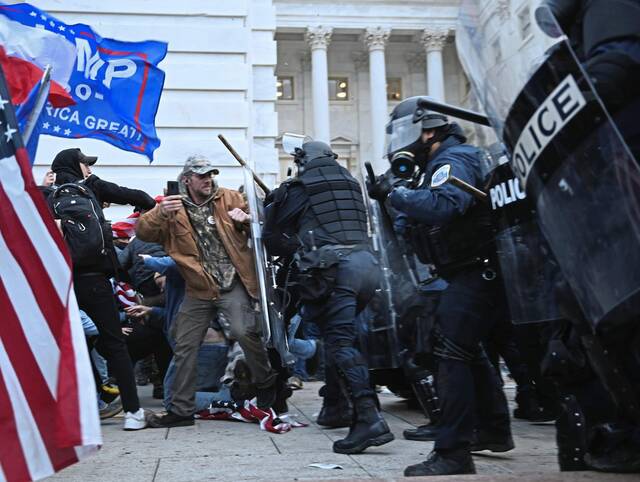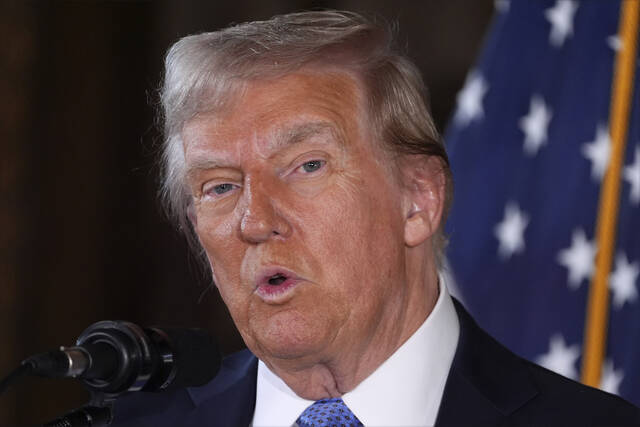The best way to stop a war is to prevent it from starting. We are failing here. Prevention beats punishment anytime with the former saving lives and the latter doing the opposite.
Terms of engagement in conflicts with nations that are formidable does not usually include punishment or sending a message. Either it is an attack, or it is not an attack. Russia will see our use of sanctions as an offensive attack by the U.S. while we will view it as punishment for invading a country. Historians will debate this decades from now after the potential damage has been done.
And do we not expect Russia to take our sanctions as a provocative act when we only see it as punitive? Do we think they would not retaliate? Are we prepared?
Our threat of retaliation and punishment for the invasion of Ukraine should have been coupled with a prevention strategy. A bully like Vladimir Putin only understands what the seventh-grade bully understands in the school yard.
If you tell the bully that when he approaches the kid he plans to beat up that the kid’s big brother will be at his side, then nothing will occur. The bully is not going to risk fighting the kid and his older brother. That is a fight not worth having. But when you tell the kid he’s on his own against the bully — then, oh well. That’s not likely to end well.
Doing more of the same (sanctions on top of sanctions) and expecting a different result is not wise. We should learn from past experience and not insist that going faster into the brick wall will give us a better result. We must have a Plan B — and that is prevention.
Sanctions on small unruly countries can work. Ask Cuba. But sanctions on a large country with advanced technological capabilities and a formidable military? The jury is out. The one example we have — the Empire of Japan — ended only via our use of nuclear weapons.
Japan was attempting to expand its influence, control and power over neighboring countries. We did not like that. Sound familiar? We used sanctions.
Japan struck us at Pearl Harbor largely due to the oil embargo against it that we imposed.
If war is like playing a game of strategic moves waged from an office, let’s make the game chess and checkmate the Russians.
The best and only way toward this outcome is the classic peace-through-strength strategy. Against a school bully or a bigger one that threatens nations, it is the only proven way to succeed with minimum loss of life. Our Cold War victory in 1991 led by Presidents Reagan and George H.W. Bush can attest to that. Putin appears to want a do-over.
We merely need to look at the casualties and length of battle in Vietnam versus Desert Storm in 1991. One had tens of thousands of deaths and one had less than 300. One lasted for nearly two decades, the other for 43 days.
In Vietnam, we initially deployed a small number of troops to the region, like President Biden recently has done in Eastern Europe.
In Desert Storm, Iraq had the fourth largest military in the world. To counter it, we initially deployed an overwhelming force — 400,000 U.S. troops. We then ramped it up to 697,000. We crushed them. Against these odds, their fighters had little fight in them.
Against Iraq we celebrated, and in Vietnam we cried.
On the Korean peninsula we have the Demilitarized Zone (DMZ) dividing North and South — checkmate. It works; it halts aggression from the North.
It is very clear. History is our best guide. Models from the past work in the business world or in life in general. They can be tempered by unexpected variables, yet they are still a better guide than shooting in the dark and hoping we get lucky.
Instead of opting to checkmate Russia, we’ve decided on a tit-for-tat procedure. The tactic will only lead to escalation. If we had blocked Russia via the checkmate tactic, we would not be facing the current problem.
What has always worked in conflicts is a checkmate. Match fire with fire. The threat and assurance of mutual annihilation has kept adversaries from using nuclear weapons. Thus, to date no one acts too crazy. Checkmate.
The U.S. and NATO can thwart Russia’s further expansion into the region by establishing a formidable military force with numbers that surpass the Russians. It must stand strong and united.
Each member of that force must be willing to shed blood protecting this wall before success can be achieved. If the bully is willing to shed the blood of the U.S. and its NATO allies, this force must be willing to do the same to the adversary. It is the ultimate prevention strategy. Checkmate.
Gary Franks served three terms as U.S. representative for Connecticut’s 5th District. He was the first Black Republican elected to the House in nearly 60 years. He is the author of “With God, For God, and For Country.” @GaryFranks








